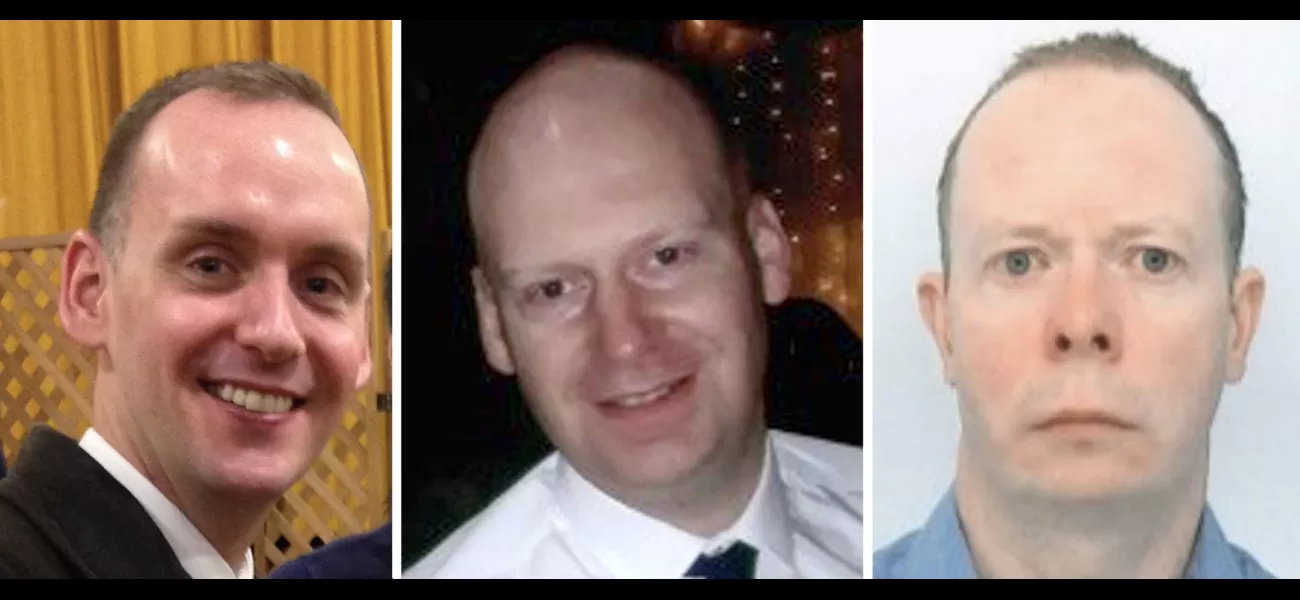Report suggests police and NHS mistakes contributed to avoidable terror attack in Reading.
Multiple agencies' shortcomings led to three fatalities.
April 26th 2024.

On a tragic day in June 2020, three friends, Joe Ritchie-Bennett, James Furlong, and David Wails, lost their lives in a senseless act of violence. Khairi Saadallah, a Libyan refugee, wielded a 20cm knife and stabbed them to death in Forbury Gardens. The attack could have been prevented if the police and NHS had intervened, as concluded by a coroner.
Khairi Saadallah also injured three others – Stephen Young, Patrick Edwards, and Nishit Nisudan – before being pursued by an off-duty police officer. However, the previous day, during a welfare check, Thames Valley Police failed to find a knife in his home. This was despite the fact that concerns had been raised about Saadallah's mental health and potential threats of harm to himself and others. The judge coroner, Sir Adrian Fulford, acknowledged that the officers had no reasonable ground to arrest or detain Saadallah based on the information available to them.
It was revealed that multiple agencies, including the police, NHS, and MI5, were aware of concerns about Saadallah but had missed opportunities to prevent the attack. The judge coroner emphasized the failings of these agencies as contributing factors to the tragic deaths. Saadallah was later sentenced to life in prison after pleading guilty to three murders and three attempted murders.
Saadallah had arrived in the UK in 2012 on a visitor's visa, which expired in September of that year. He was then stuck in a state of limbo, with his asylum application refused, but unable to be deported due to the ongoing civil war in Libya. He had a history of convictions for various offenses, indicating a deterioration in his behavior from late 2018 onwards. He had also been carrying offensive weapons in public and had shown a propensity for attacking others. However, opportunities to intervene were missed.
During the inquest, it was revealed that if Saadallah's extremist risk had been better analyzed, the attack could have been prevented. A counsellor testified that he had repeatedly raised concerns about the attacker's mental health and had even been harassed by Saadallah himself. Saadallah had borderline personality disorder and may have also suffered from post-traumatic stress disorder, leading to alcohol and drug abuse. However, he was deemed ineligible for treatment, leaving him in a catch 22 situation. The judge coroner highlighted the failures of the Berkshire Healthcare NHS Foundation Trust Community Mental Health Team, stating that the deaths could have been avoided if they had given greater priority to stabilizing Saadallah and providing access to long-term psychological therapy.
Nick Harborne, from Reading Refugee Support Group, had also raised concerns about Saadallah to the NHS, warning that he was vulnerable to being radicalized. He had even expressed fear that if Saadallah did not receive the right support for his trauma while in prison, there could be disastrous consequences upon his release. The court heard that Saadallah had been referred to Prevent four times, but each referral was closed as he was in prison. This was due to the belief that any risk he posed was based on his mental health issues rather than an extremist ideology. The judge coroner expressed concern over this failure to identify and act on the risks posed by Saadallah.
Before his release from prison, Saadallah had made threats of violence, but this information was not included in an intelligence report until after the attack. It was also revealed that MI5 had declared him a subject of interest for some months in 2019, but they had no credible intelligence to suggest that he was planning an attack in the UK. The judge coroner stated that although MI5 could not have prevented the attack, the information provided to them by Counter Terrorism Policing South East was inadequate.
Throughout the proceedings, Saadallah's mental state was a significant factor, and workers from probation, immigration, police, and MI5 gave evidence. One probation worker even broke down in tears while recalling unknowingly managing a convicted murderer. The judge coroner ultimately recorded a conclusion of unlawful killing for the deaths and will issue a report to the Home Secretary, Justice Secretary, chief constable of Thames Valley Police, Berkshire Healthcare NHS Foundation Trust, and Midlands Partnership University NHS Foundation Trust to prevent future deaths.
Khairi Saadallah also injured three others – Stephen Young, Patrick Edwards, and Nishit Nisudan – before being pursued by an off-duty police officer. However, the previous day, during a welfare check, Thames Valley Police failed to find a knife in his home. This was despite the fact that concerns had been raised about Saadallah's mental health and potential threats of harm to himself and others. The judge coroner, Sir Adrian Fulford, acknowledged that the officers had no reasonable ground to arrest or detain Saadallah based on the information available to them.
It was revealed that multiple agencies, including the police, NHS, and MI5, were aware of concerns about Saadallah but had missed opportunities to prevent the attack. The judge coroner emphasized the failings of these agencies as contributing factors to the tragic deaths. Saadallah was later sentenced to life in prison after pleading guilty to three murders and three attempted murders.
Saadallah had arrived in the UK in 2012 on a visitor's visa, which expired in September of that year. He was then stuck in a state of limbo, with his asylum application refused, but unable to be deported due to the ongoing civil war in Libya. He had a history of convictions for various offenses, indicating a deterioration in his behavior from late 2018 onwards. He had also been carrying offensive weapons in public and had shown a propensity for attacking others. However, opportunities to intervene were missed.
During the inquest, it was revealed that if Saadallah's extremist risk had been better analyzed, the attack could have been prevented. A counsellor testified that he had repeatedly raised concerns about the attacker's mental health and had even been harassed by Saadallah himself. Saadallah had borderline personality disorder and may have also suffered from post-traumatic stress disorder, leading to alcohol and drug abuse. However, he was deemed ineligible for treatment, leaving him in a catch 22 situation. The judge coroner highlighted the failures of the Berkshire Healthcare NHS Foundation Trust Community Mental Health Team, stating that the deaths could have been avoided if they had given greater priority to stabilizing Saadallah and providing access to long-term psychological therapy.
Nick Harborne, from Reading Refugee Support Group, had also raised concerns about Saadallah to the NHS, warning that he was vulnerable to being radicalized. He had even expressed fear that if Saadallah did not receive the right support for his trauma while in prison, there could be disastrous consequences upon his release. The court heard that Saadallah had been referred to Prevent four times, but each referral was closed as he was in prison. This was due to the belief that any risk he posed was based on his mental health issues rather than an extremist ideology. The judge coroner expressed concern over this failure to identify and act on the risks posed by Saadallah.
Before his release from prison, Saadallah had made threats of violence, but this information was not included in an intelligence report until after the attack. It was also revealed that MI5 had declared him a subject of interest for some months in 2019, but they had no credible intelligence to suggest that he was planning an attack in the UK. The judge coroner stated that although MI5 could not have prevented the attack, the information provided to them by Counter Terrorism Policing South East was inadequate.
Throughout the proceedings, Saadallah's mental state was a significant factor, and workers from probation, immigration, police, and MI5 gave evidence. One probation worker even broke down in tears while recalling unknowingly managing a convicted murderer. The judge coroner ultimately recorded a conclusion of unlawful killing for the deaths and will issue a report to the Home Secretary, Justice Secretary, chief constable of Thames Valley Police, Berkshire Healthcare NHS Foundation Trust, and Midlands Partnership University NHS Foundation Trust to prevent future deaths.
[This article has been trending online recently and has been generated with AI. Your feed is customized.]
[Generative AI is experimental.]
0
0
Submit Comment





